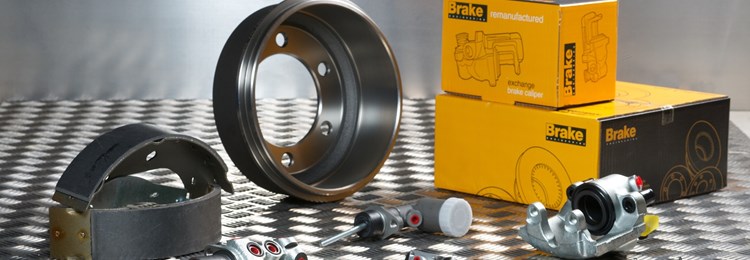
Brake Engineering introduces surge of new calipers to mark 40th year
Date: Friday 01 October 2021
Brake Engineering has introduced an impressive 82 new brake calipers since the start of 2021, as it celebrates its 40th anniversary by continuing its commitment to innovation and service in the automotive aftermarket.
The additional part numbers demonstrate the aftermarket specialist’s ever-growing vehicle parc coverage, with the calipers offering European coverage of 24 million across popular vehicle makes and models for both passenger cars and light commercial vehicles.
The range extension features 20 painted calipers in a number of colours covering SEAT Leon, Leon Hatchback Van, Leon SC, Leon ST and Leon ST Estate Van; SKODA OCTAVIA IV; PEUGEOT 508 I and 508 SW I; Abarth 500 / 595 / 695, 500C / 595C / 695C; Alfa Romeo Giulietta and Giulietta Hatchback Van; Volkswagen Up! and 1.0 GTI; and also, Audi R8, R8 Spyder, Q3 A6 C7, A6 C7 Avant, A4 B9 Avant, A5, A5 Sportback, Q7 and Q8.
This year, Brake Engineering has also produced its eight millionth remanufactured caliper, a testament to the labour intensive, but also extremely thorough core competencies of the brand used to produce calipers, five days a week.
The latest extension represents Brake Engineering’s ‘Original Aftermarket’ promise to provide customers with traceable braking solutions based on the company’s longstanding aftermarket experience and expertise.
Each caliper is only released into the market once it passes a multi-stage high- and low-pressure test, as used at OE level.
All of the new units have been remanufactured in line with stringent Brake Engineering procedures whereby an acceptable core is identified and all worn parts are replaced with 100 percent brand new components including pistons, seals and sliders.
The Brake Engineering brand has led a resurgence in remanufactured brake calipers, which offers numerous benefits for the environment: Waste is reduced, the need for raw materials is minimised and non-renewable resources are kept in circulation.
